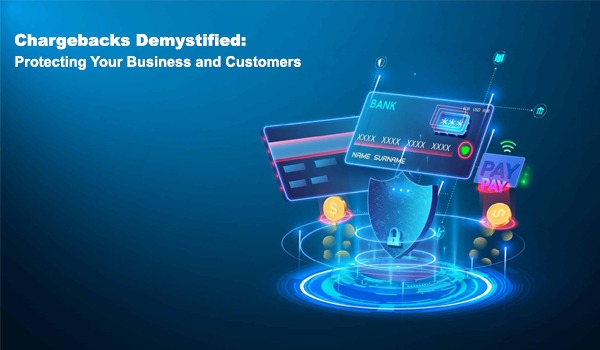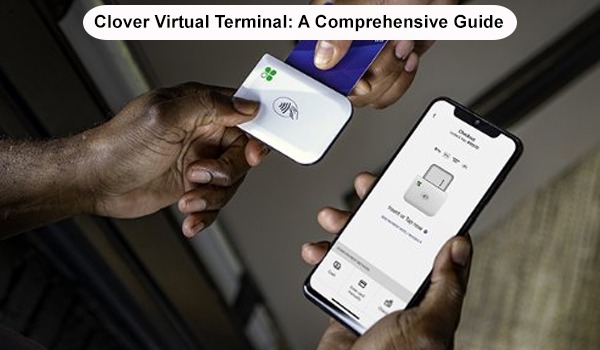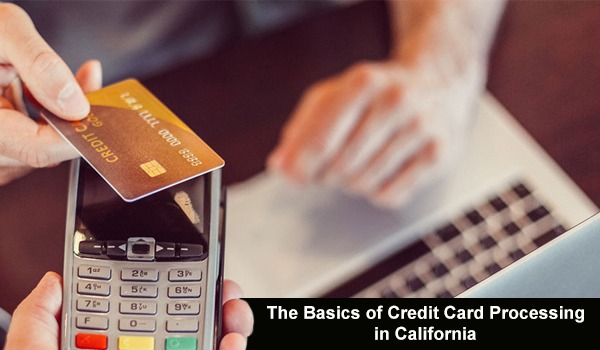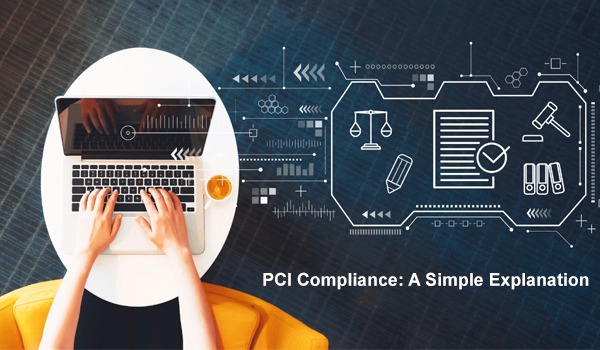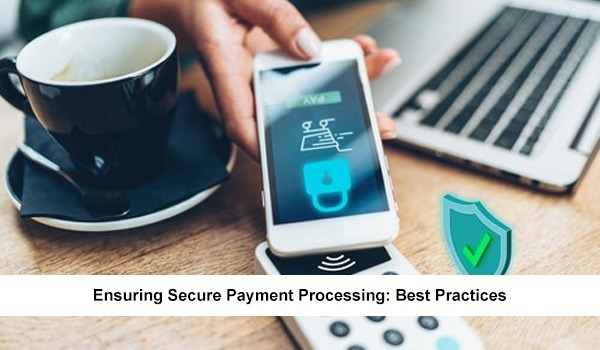
Introduction
In the rapidly advancing digital commerce landscape, safeguarding the integrity and confidentiality of credit card processing methods stands as a critical imperative for businesses across the spectrum of industries and sizes. As online transactions and electronic payments proliferate, the protection of sensitive financial data emerges as a paramount concern, not only for regulatory compliance but also for fostering trust and confidence among customers. In this era where cyber threats loom large, ensuring robust security measures within credit card processing systems has ascended to the forefront of organizational priorities.
As businesses navigate the complex terrain of digital transactions, they encounter a myriad of challenges and risks associated with handling sensitive financial information. From the potential for data breaches and fraudulent activities to the evolving landscape of regulatory requirements and industry standards, the task of securing credit card processing methods presents a multifaceted challenge. Recognizing the stakes involved in safeguarding customer data and preserving the integrity of financial transactions, businesses must adopt a proactive and comprehensive approach to security.
Against this backdrop, this article serves as a guidepost for businesses seeking to fortify their credit card processing methods against potential threats and vulnerabilities. Organizations can gain valuable insights into building resilient and secure payment ecosystems by exploring the best practices and strategies employed by industry leaders and security experts. Through the implementation of robust encryption protocols, stringent compliance with industry standards such as PCI DSS, and the deployment of advanced fraud detection and monitoring systems, businesses can mitigate risks and enhance the security posture of their credit card processing infrastructure.
Moreover, by fostering a culture of security awareness and investing in employee training programs, businesses can empower their workforce to serve as vigilant guardians of sensitive financial information. In doing so, organizations not only protect themselves against potential liabilities and reputational damage but also demonstrate their unwavering commitment to customer trust and data privacy. As businesses strive to navigate the complex landscape of digital commerce, prioritizing the security of credit card processing methods emerges as a cornerstone of success in today's interconnected and data-driven economy.
Encryption and Tokenization
Encryption and tokenization are foundational security measures for protecting credit card data. Encryption transforms plain, readable data into a scrambled format called ciphertext using complex algorithms and cryptographic keys. This process renders the information indecipherable to unauthorized individuals, ensuring its confidentiality and security.
Even if intercepted during transmission or storage, the encrypted data remains secure and unintelligible to anyone without the proper decryption key.
Tokenization, on the other hand, replaces sensitive cardholder information with non-sensitive tokens. These tokens are meaningless to attackers and can be safely stored and transmitted without compromising security. By implementing encryption and tokenization, businesses can safeguard credit card data both in transit and at rest, reducing the risk of data breaches and unauthorized access.
PCI DSS Compliance
Compliance with the Payment Card Industry Data Security Standard (PCI DSS) is essential for any business that accepts credit card payments. PCI DSS outlines a set of requirements for securely processing, storing, and transmitting credit card data to prevent data breaches and fraud. These requirements include maintaining a secure network infrastructure, encrypting cardholder data, implementing access controls, regularly monitoring and testing systems for vulnerabilities, and maintaining strict security policies and procedures. By adhering to PCI DSS compliance standards, businesses can ensure the security of credit card processing methods and build trust with customers by demonstrating their commitment to protecting sensitive financial information.
Multi-Factor Authentication (MFA)
Multi-factor authentication (MFA) adds an extra layer of security by requiring users to provide multiple forms of verification before accessing sensitive systems or processing transactions. This typically involves something the user knows (such as a password), something they have (such as a mobile device for receiving a one-time code), or something they are (such as biometric data). By requiring multiple factors of authentication, MFA reduces the risk of unauthorized access even if one factor is compromised. Implementing MFA strengthens access controls and enhances security, making it more difficult for attackers to gain unauthorized access to credit card processing systems and sensitive financial information.
Fraud Detection and Monitoring
Fraud detection and monitoring systems play a crucial role in identifying and mitigating fraudulent activities in credit card processing. These systems employ sophisticated algorithms and machine-learning techniques to analyze transaction data in real time. By establishing patterns of normal behavior, they can quickly detect anomalies and flag potentially fraudulent transactions for further investigation. Real-time monitoring allows businesses to take immediate action to prevent fraudulent transactions, protecting both themselves and their customers from financial losses and reputational damage. Additionally, regular monitoring and analysis of transaction data can provide valuable insights into emerging fraud trends and patterns, enabling businesses to continuously improve their fraud prevention strategies.
Secure Payment Gateways
Selecting a secure payment gateway is essential for ensuring the security of credit card transactions. A secure payment gateway encrypts sensitive payment information during transmission, protecting it from interception by cyber criminals. Additionally, reputable payment gateways often offer built-in fraud prevention tools, such as address verification and card verification code (CVC) checks, to further enhance security and reduce the risk of fraudulent transactions. By partnering with a trusted payment gateway provider, businesses can leverage advanced security features and technologies to safeguard credit card data and protect against unauthorized access and fraudulent activity.
Regular Security Audits
Regular security audits and assessments are critical for identifying vulnerabilities and weaknesses in credit card processing systems. These audits involve conducting comprehensive reviews of security controls, policies, and procedures to ensure compliance with industry standards and best practices. By regularly assessing the effectiveness of security measures and addressing any identified issues, businesses can strengthen their defenses against potential threats and vulnerabilities. Furthermore, security audits provide an opportunity to evaluate the overall security posture of the organization, identify areas for improvement, and implement necessary updates and patches to fortify security controls and protect against evolving cyber threats.
Employee Training and Awareness
Employees play a pivotal role in maintaining the security of credit card processing methods. Comprehensive training programs should educate staff on security best practices, including how to recognize and respond to potential security threats such as phishing attacks, social engineering tactics, and suspicious behavior. By raising awareness and instilling a culture of security within the organization, employees become the first line of defense against cyber threats. Regular training sessions and security awareness programs keep employees informed about the latest security threats and trends, empowering them to take proactive measures to protect sensitive financial information and uphold the security standards of the organization.
Conclusion
In conclusion, securing credit card processing methods requires a multi-faceted approach that addresses encryption and tokenization, PCI DSS compliance, multi-factor authentication, fraud detection and monitoring, secure payment gateways, regular security audits, and employee training and awareness. By implementing these best practices, businesses can mitigate the risk of fraud and ensure safe transactions for their customers while protecting their reputation and integrity in the digital marketplace. Prioritizing security safeguards sensitive financial information and fosters trust and confidence among customers, ultimately driving business success.


